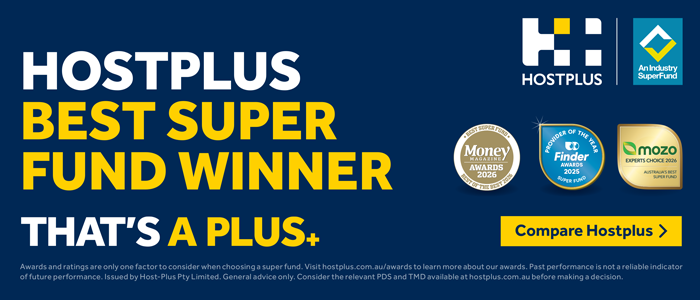
Hotel Property Investments is embracing a strategy in line with its moniker, looking to a raft of opportunities in a virile market in a fight-back against the attempted takeover by Charter Hall and Hostplus.
After an initial bid in September, the revised offer from the listed Charter Hall retail fund and superannuation player Hostplus effectively stood to pay HPI shareholders $3.79, following a recent distribution, valuing the listed (ASX:HPI) company at around $757 million. This equates to six per cent below the net book value of its assets.
This latest number was declared ‘best and final’ and was accompanied by a further extension of the acceptance date, while the bidders attempted to woo more HPI investors.
Again HPI’s board rejected the offer, in October, ahead of the company’s annual general meeting in Melbourne this week.
Managing director John White says their issue with the bid is that it is below what they see as the value and potential of the $1.3 billion portfolio. He stems from a background as a real estate and portfolio manager and was brought on as part of HPI’s growth strategy, to “unlock value”.
White presented to shareholders at the AGM with a message that they plan to “sweat assets harder” by improving pub operations, increasing appeal to demographics that live in or travel to the area, and looking at diversifying and “adjacent income”.
The plan is to maximise returns from both the pub and surrounding land, improving the value of the portfolio, but will likely also include sale of some assets, and possibly some of its surplus EGM licences in Queensland, with funds reinvested into smaller projects showing more immediate return.
A budget of $50 million has been allotted to a capex program to update venues, with multiple projects slated to commence in the next 12 months.
Success in this approach has already been realised at the Berserker Tavern in Rockhampton, leased to AVC, which was transformed into a family-focused offering and saw revenue jump from around $50K to $190K in the first week reopened.
Beyond the enhancement, HPI is currently undergoing diligence in purchase of up to six assets, totalling around $75 million.
Another major component of the strategy is “capital partnerships” with other entities, such as existing pub operators or strategic investors, which is an approach HPI has been entertaining for a while.
This may take the form of a fund investing in sale-and-leasebacks with owner-operators, not unlike the ‘de-stapled’ assets it shares with AVC, or may involve partnerships where HPI manages the assets for private investors.
The specifics and structure of any arrangements are still in being determined, but White says interest is high and they have had incoming queries from publicans and lessees on the status of the bid and potential of the sites.

“We are in early discussions with an experienced pub operator to aggregate freehold going concern assets into a vehicle, which HPI will co-invest with a capital partner.
“This strategy is complementary to our balance sheet assets and will enhance returns on invested capital for security holders.”
Analysis found that roughly only 41 per cent of the land in HPI’s portfolio is being utilised, lending heavily to the idea of selectively developing for broader use.
This is likely to take several forms and include new accommodation, food outlets, and supplementary offerings such as EV charging stations.
These projects may involve JVs with a specialist developer, management agreements, or even sale of development-approved sites. White offered that HPI would not undertake developments itself.
Suitable opportunities include flagship venue the Regatta Hotel, which has available space for either residential or short-stay accommodation, and Brisbane’s Crown Hotel, identified as suited to a residential tower.
Furthermore, most of the company’s pubs are on long leases to AVC (Australian Venue Co) and its partnership with Coles, Queensland Venue Company. There are clear potential synergies with PAG, which acquired AVC from KKR for $1.4 billion and also owns Craveable Brands, which counts Oporto and Red Rooster in its stable of restaurant chains.
HPI has maintained its debt at the lower end of targeted gearing, and is being prudent in the expansion plans. The strategic sale of non-core assets is expected to free up $20-30 million.
To date it has also agreed on the sale of two freeholds to AVC, being the Royal Mail Hotel in Tewantin and Woodpecker in Moreton Bay. This represents a special arrangement whereby AVC will spend money redeveloping the hotels and HPI retains the right of first refusal over buying them back, with a new lease agreement.
This has liberated another $25-30 million in capital, and is an example of the close working relationship HPI enjoys with its primary tenant.
As it stands, together Charter Hall and Hostplus hold 25.43 per cent of HPI, and another 3.17 per cent of shareholders have accepted the bid offer. This is ominously short of the 50-plus share required for the takeover to be successful. HPI shareholders have been given until 26 November to accept or decline.
As a stapled trust, White understands HPI investors are looking for an income stream, and he believes that in an economic climate where interest rates are expected to decline, the cashflow-rich lease-secured nature of the pub assets is highly desirable with investors.
“They are well-positioned to deliver robust performance and distribution growth,” he says.
“Charter Hall and Hostplus are large investors, but not the only ones interested in pubs.”

